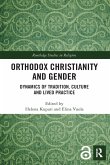The liberal churches are tolerant, rational, democratic, cooperative, and dogmatically flexible. And they are dying. The conservative churches are zealous, puritanical, authoritarian, xenophobic, and monolithic - and they are thriving. Why? Because people join churches in order to find guidance, to satisfy the need for group identification, to feel that they are changing their lives. If a church is able to provide those elements, it survives and grows, but if it is indistinguishable from any other church - and, indeed, indistinguishable from society at large - then there is nothing in it to attract members or to retain those that it has. This, as Kelley recognizes, is not a welcome explanation of the decline of the liberal churches; but it is an inescapable one and one that is pragmatically verifiable. The churches, the author concludes, have a hard choice: be strict, or be extinct. He does not go into the deeper question of whether survival for the sake of survival is a true religious value; but he says enough to awaken second thoughts among the liberal clergy who are determined, in any case, to survive. (Kirkus Reviews)







